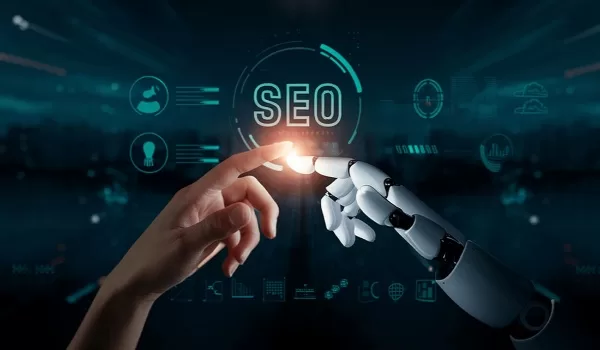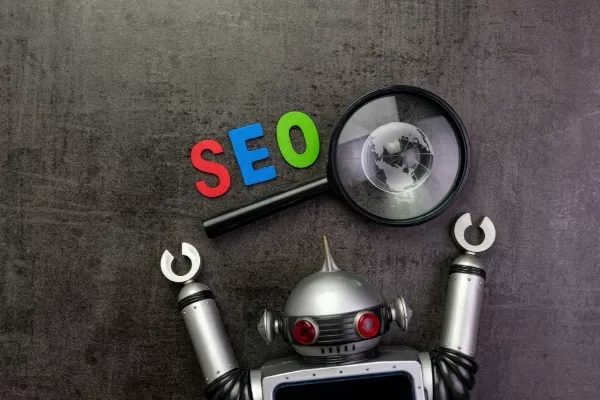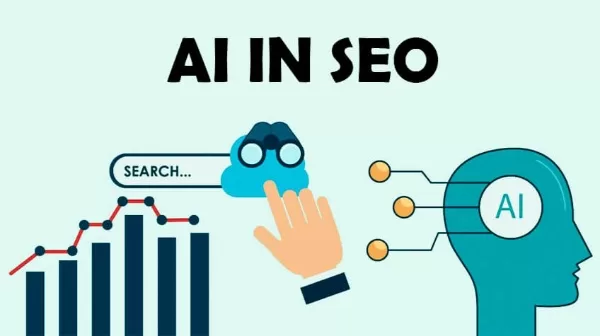Insights
Is AI killing SEO? How you can refine your SEO strategy
On Digitals
14/08/2025
49
Is AI killing SEO? You might have seen headlines that make your heart skip, after all, if AI is killing SEO, what does that mean for your website’s traffic? Fortunately, the truth is a lot less dramatic. The reality is that SEO is not dead, it is simply changing. The tools we use, the way people search, and where visibility happens are evolving fast. Let’s take a gander at this shift so you can keep your content front and center.
Is AI Killing SEO or Is That Simply Hype?
Is AI killing SEO? And what’s driving this narrative?
If you run a startup or a smaller business, you’ve probably had that sinking feeling: “Is AI killing SEO?” It’s easy to see why. Everywhere we turn, AI-generated summaries like Google’s AI Overviews and zero-click results are taking center stage. That means fewer people are clicking your links, it feels like SEO is fading fast.
But here’s the silver lining: AI doesn’t create content from thin air. It runs on solid, well-crafted content. That means if your brand is creating helpful, clearly structured articles, blogs, or guides, those same materials power AI-generated answers. In short, great content still drives visibility, even in AI-driven formats.

Is AI killing SEO?
SEO isn’t dead, it’s evolving
Let’s clear something up: according to Google, SEO isn’t being replaced, it’s still essential. AI and chatbots still rely on websites to function. If your content isn’t optimized and accessible, AI won’t surface it and neither will human users. On top of that, AI still cites its sources, so you will still have a chance to be discovered, only in a wildly different way.
But here’s the kicker. The real problem isn’t AI, it’s fragile strategies built on shortcuts, low-quality content, or tactics designed to game the system through quantity alone. Those cracks are now being exposed by AI because it has access to such a vast amount of data, it will only pick the very best to feature.
To put it simply, SEO is far from dead. It’s under a microscope, and the businesses investing in authentic, user-first content, not quick hacks, are the ones holding steady, and even thriving. In reality, this also creates a window of opportunity for smaller businesses to compete with giants, something quite far-fetched before this.
How Is AI Changing SEO
Users’ behaviors are changing
So you might be wondering: is AI killing SEO in practical terms? Well, the way people search is shifting fast. Generative AI tools, like Google’s AI Overviews and ChatGPT, Gemini, and even Claude, are serving summaries that answer queries right on the search page or right in their answers. That means users often don’t click through anymore.
In fact, some have found that about 80% of people rely on “zero-click” results for at least 40% of their searches. That’s a big shift in behavior, as people now expect the answers to pop up immediately for them, while back then, they were more inclined to click on different links and read through multiple results to see.
What’s losing effectiveness
If your go-to strategy has been flashy headlines, fluffy copy, or stuffing keywords, you might be feeling the squeeze. AI-powered systems are getting really good at sniffing out clickbait and low-quality content and downgrading it fast.
Plus, if your site loads slowly or feels like a maze, AI systems and users alike move on quickly. Websites that are fast, clean, and structured win out in this new environment. So unless your content is providing users with valuable insights or offering new knowledge or viewpoints, you are at risk of being ignored by AI tools.

AI is changing how many people do SEO
What Still Works and How SEO Can Work with AI
High-Quality, Structured Content Wins
The rise of AI has actually made quality content more valuable, not less. Quality over quantity is still the norm, with high-quality, relevant, and comprehensive content bringing far more quality traffic than mountains of uninteresting, irrelevant content. When AI systems look for sources to cite or reference, they prioritize content that’s well-structured, authoritative, and genuinely helpful.
Think of AI as the ultimate fact-checker and curator. It needs dependable sources to draw from, and businesses that consistently publish thoughtful, clear, and trustworthy content get amplified rather than replaced. Your content becomes the raw material that AI uses to provide accurate answers, which means being cited by AI can actually expand your reach beyond traditional search traffic.
The key is structure. Use clear headings, bullet points, and logical flow, which is technically still the norm. Make your expertise easy to digest for both human readers and AI systems. When your content is well-organized and authoritative, it becomes a go-to source that AI platforms turn to again and again.
Understanding Answer Engine Optimization (AEO)
The world of AEO is driven by the practice of optimizing content to get cited by ChatGPT, Google AI Overviews, Perplexity, and Bing Copilot. Instead of just trying to rank high in search results, AEO focuses on designing content as clear, concise answers to specific questions.
AEO puts the user’s question at the center of your strategy, demanding content that’s high-quality, authoritative, structured, and succinct enough to serve as a direct answer. This means thinking like your customers—what questions are they asking, and how can you provide the most helpful, direct response? Again, the keyword is “direct.”
Practical AEO tactics include:
- Writing in a Q&A format where relevant
- Using an inverted-pyramid structure: Begin with the direct answer (in 1–2 sentences), followed by explanation and examples
- Turning headers into questions by formatting headings as user queries (e.g., “What is AEO?”), making AI selection easier
- Creating comprehensive but scannable content that answers related follow-up questions
Mastering Generative Engine Optimization (GEO)
While AEO focuses on being the answer, GEO is about being cited as the source. GEO positions your brand to appear in AI-generated results when users search for queries related to your products, services or areas of expertise. It’s about building content that’s optimized to be referenced and quoted by AI systems.
The numbers tell the story: A 2024 survey estimated that 13 million Americans already use generative AI as their preferred search engine, with projections exceeding 90 million by 2027. That means people trust generative AI, and considering all the updates and new model rollouts in recent times, that trust is only going to get stronger.
GEO strategies include:
- Creating content with clear, quotable sections that AI can easily extract
- Using structured data and schema markup to help AI understand your content’s context
- Building comprehensive resource pages that become go-to references in your industry
- Ensuring your brand presence is strong across multiple platforms, as platforms like Reddit, YouTube, and other user-generated content sites appear frequently in AI outputs

What you need to know when doing SEO with AI
Embracing AI Optimization (AIO) Techniques
AIO takes optimization to a more technical level, it’s about making your content as AI-friendly as possible. This means creating content that large language models can easily parse, understand, and reference. Think of it as speaking AI’s language while still creating value for humans.
Key AIO principles include:
- Semantic clarity: Use clear, unambiguous language that leaves little room for misinterpretation
- Logical structure: Organize information in a way that follows natural reasoning patterns
- Contextual richness: Provide enough background and detail for AI to understand the full picture
- Technical efficiency: Ensure fast loading times and clean code that AI crawlers can easily process
Essential Multi-Platform Presence
Today’s AI systems don’t just look at your website, they scan the entire digital ecosystem. You must have already seen your AI assistant giving out answers from Facebook posts or Reddit threads. Being active on multiple platforms lets you reach your audience and increases your chances of being cited by AI engines. This means maintaining quality content across:
- Your website and blog
- Industry forums and discussion platforms
- Social media channels relevant to your business
- Professional networks and directories
- Video platforms and podcasts where appropriate
The goal isn’t actually to be everywhere, but to be consistently valuable wherever your audience naturally gathers. That means you should only allocate your time and budget to the platforms your audience frequents and those that fit your identity, not every single platform under the sun.
Practical Steps for Businesses Ready to Adapt
Ready to future-proof your SEO strategy? Here’s your action plan:
Technical Foundation
- Ensure fast-loading pages with clean, structured content built for both humans and machines
- Implement schema markup and structured data to help AI understand your content
- Use structured data markup to provide clear context to search engines and AI, helping them accurately interpret content and improving chances of appearing in answer boxes
- Optimize for mobile and ensure excellent user experience metrics
Content Strategy
- Use simple Q&A or list formats where they add value
- Create comprehensive resource pages that answer multiple related questions
- Focus on providing context-rich, trustworthy content that outperforms AI-generated fluff
- Develop expertise-driven content that establishes your business as an authority
Balanced Approach
Don’t abandon traditional SEO, enhance it instead. The most successful businesses are blending established SEO practices (like on-site optimization, user engagement, and backlink building) with these new AI-aware strategies. It’s recommended to use both strategies rather than choosing one over the other.
How AI and SEO Can Coexist and Accelerate Growth
The relationship between AI and SEO isn’t a zero-sum game, it’s actually a powerful partnership waiting to be unlocked. While the metrics might look different, the opportunities for growth are bigger than ever. Let’s explore how smart businesses are turning AI from a threat into their secret weapon for brand growth.
AI as Your Content Amplifier
Think of AI as the world’s most sophisticated content distribution network. When your content is structured well, AI tools don’t compete with you but become your amplifiers. The fundamentals haven’t changed: create helpful content, structure it properly, and build brand authority. Do that, and you’ll show up in both search results and AI-driven answers.
Prioritize Brand Mentions Over Click Counts
Yes, let’s address the elephant in the room: clicks are declining. By 2024, nearly 60% of Google searches in the U.S. ended without a click, a number that continues to grow as AI-generated answers become more common. The numbers are stark: A Semrush study of 10,000 informational keywords found that AI-generated summaries significantly reduced both organic and paid click-through rates, with research suggesting that AI Overviews could slash organic traffic by 18% to 64%.
But here’s the plot twist: this isn’t necessarily bad news for your brand. While direct clicks might be decreasing, brand mentions and citations in AI responses are creating a new form of digital authority. Every time ChatGPT cites your company, or Google’s AI Overview quotes your research, you’re building brand recognition with audiences who might never have discovered you through traditional search.

The relationship between AI and SEO
The Hybrid Advantage: Why Integration Beats Competition
The most successful businesses aren’t choosing between SEO and AI optimization, they’re building hybrid strategies that leverage both. This integrated approach recognizes that search isn’t a platform.
Forward-thinking companies are discovering that when you optimize for both traditional search and AI systems, you create a compound effect. Your content becomes more discoverable across all channels, your brand authority grows faster, and you’re positioned to succeed regardless of how search technology evolves.
With your traditional SEO foundation intact, including the technical SEO elements and your link building strategies, add a layer of AI optimization and build brand authority by creating thought leadership content, encouraging engagement through all your platforms, and fostering partnerships.
When Should You Incorporate AI into SEO?
The best way to make your content AI-resistant isn’t to fight the algorithm, because you can’t. AI isn’t going anywhere, and neither is the human need for trustworthy, expert information. By positioning your business as the go-to source that both humans and AI systems turn to, you’re not just surviving, you’re thriving because of it.
The implementation process will take a lot of time and effort, as training, resource preparation, and additional optimization don’t just happen in one day. With that said, now is the best time to get started.
Is AI Killing SEO? FAQs and Answers
Isn’t AI making my website traffic drop?
It’s true to a degree, some businesses are seeing fewer clicks, especially on informational content, but a drop in clicks doesn’t mean invisibility. Google claims overall click volumes have held fairly steady, with users engaging more deeply when they do click and emerging traffic from AI platforms like ChatGPT offers new upside.
Should I abandon SEO and just optimize for AI tools like ChatGPT?
Not at all. Rather than seeing this as a choice between AI and SEO, think of it as building the best of both worlds. Going all-in on one or the other isn’t wise. A blended approach keeps you visible across evolving platforms.
What is AEO or GEO and do I need them?
- AEO (Answer Engine Optimization): This involves structuring your content so AI tools can extract clean, concise answers—think lists, Q&A layouts, and clearly highlighted points.
- GEO (Generative Engine Optimization): This deepens your AI visibility by making your content citable so AI can “see” and cite your content accurately.
These strategies help ensure your content isn’t just discovered, it’s featured in AI-generated responses.
Will AI-generated answers become more trustworthy than clicking through?
They might seem slick, but AI answers still come with blind spots, accuracy, bias, and lack of nuance can creep in. Many users click through for deeper context, verification, or simply to interact with a trusted brand, especially if they are cited in the answer generated by the AI model. Keep building confidence through clarity, transparency, and quality, and you’ll remain a trusted destination.

Common questions about SEO and AI
Incorporate AI Into SEO With On Digitals
Is AI killing SEO? Not at all, instead, it’s reshaping the rules in ways that savvy businesses can turn to their advantage. High-quality, structured content still wins the day. By blending traditional SEO foundations with new-layer tactics like AEO, GEO, and AIO, you create content that both readers and AI engines trust. In this evolving landscape, SEO isn’t dying, it’s just more strategic, more resilient, and more valuable than ever.
The best course of action for this situation is to partner with an agency that understands both SEO fundamentals and next-gen AI strategies. On Digitals is a Vietnam-based digital marketing agency trusted by startups and growing businesses alike. We combine deep SEO know-how with transparent, strategic execution to help you stay visible and competitive as everything evolves, bringing you our comprehensive SEO service package.
NEWEST POSTS
Read more
